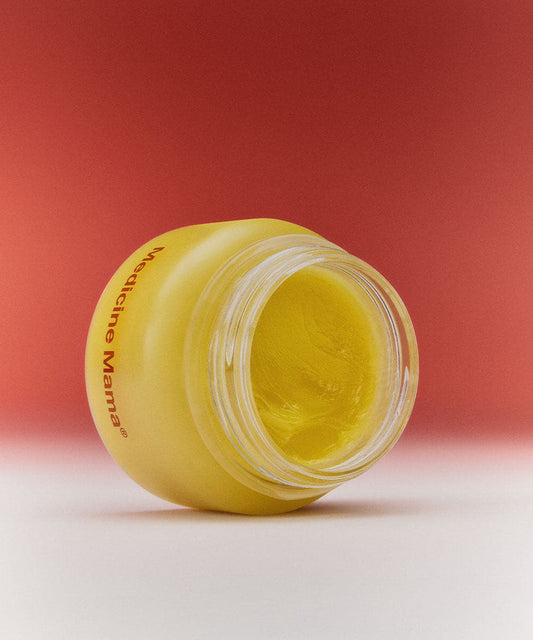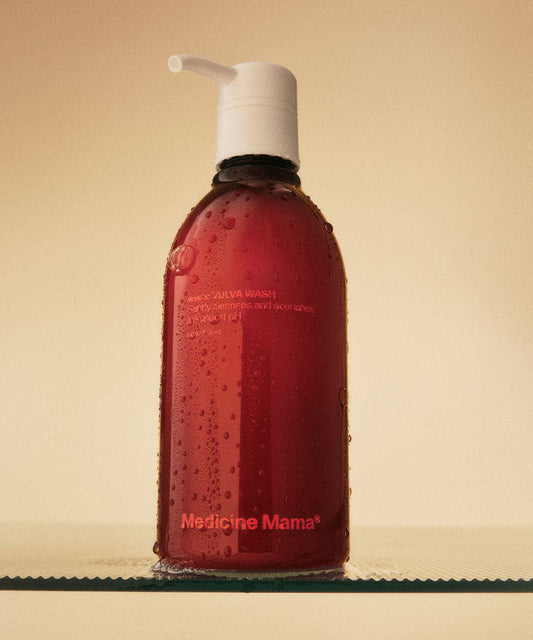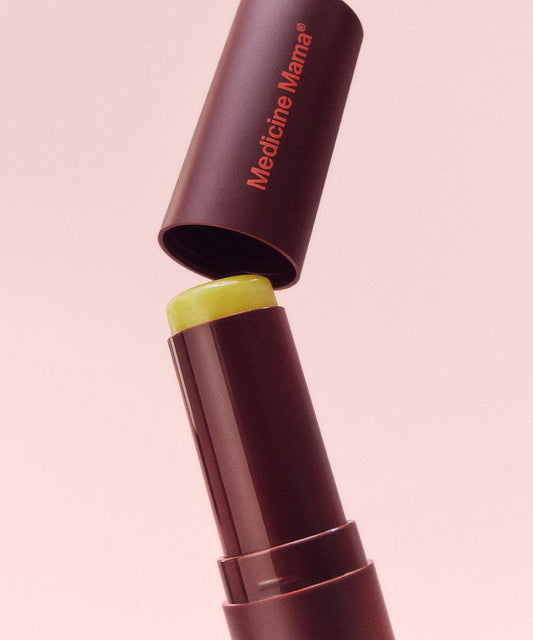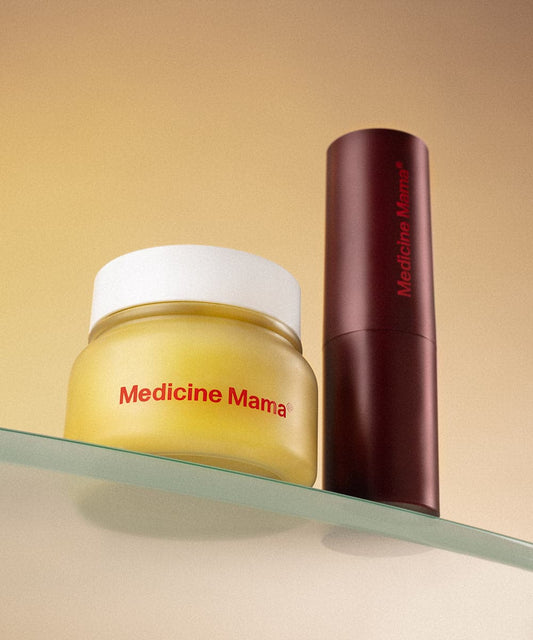
Reviewed by | Dr. Clare Bertucio MD
Itching is unpleasant anywhere on the body, but it’s particularly awful when you have an itchy vagina or itchy vulva. Every woman has experienced an itchy vulva at some point, whether from shaving, medications like birth control, changes in hormones from pregnancy or menopause, or many other reasons.
Most of the time, the cause of the itching is clear and you can take steps to relieve the itch. Sometimes, however, the reason for your itch may not be as apparent and it can be frustrating trying to fix something when you don’t know what the problem is.
If you’re itchy down there and can’t figure out why, then we’re here to help! Keep reading to learn more about what can cause vaginal itching, what you can do to prevent and fix it, and when it’s time to see your doctor.
What Causes Vaginal Itching?
If you find yourself wondering, “why is my vagina so itchy?” then look no further! Many things can cause vaginal itching, and it can be extremely difficult to pinpoint the exact cause of your discomfort. Most commonly, itching is caused by some kind of chemical irritant that causes a condition called contact dermatitis.
In this case, your vulva will look red, irritated, and will be sore. Many daily cleansing items and household cleaners that contain fragrances can be potential skin irritants – particularly if you have sensitive skin. Some of the most common things that cause contact dermatitis include:
- Soaps and shower gels that have fragrance
- Dryer sheets
- Scented laundry soap or pods
- Toilet paper, genital wipes, pads, or tampons with fragrance added
- Scented lotions or topical ointments
- Douches and feminine sprays
If you have a latex allergy then condoms can cause irritation to the vulva and vagina. Topical spermicides and gel contraceptives such as Phexxi can cause this irritation as well.
When choosing feminine care products we recommend natural, fragrance free products without harsh surfactants that are specifically formulated for your delicate feminine skin.
What Conditions Cause Vaginal Itching?
If your vaginal itching isn’t caused by contact dermatitis, then it could be the result of one of the following conditions.
These conditions all vary in severity, with some being relatively mild with others, such as STDs, being more severe. The good news is that most are all treatable with medications. If you suspect that you may have any of these conditions, reach out to your doctor to learn more about your treatment options.
Yeast Infection
Also known as vaginal candidiasis, yeast infections typically occur when your immune system has been weakened causing the naturally occurring yeast in your vagina to grow out of control. Although yeast infections are extremely unpleasant, they are very common, affecting 3 out of 4 women at some point in their lives.
Yeast infections can be caused by taking antibiotics, pregnancy, stress, and uncontrolled diabetes. Other symptoms besides itching include a thick, white, chunky discharge.
Bacterial Vaginosis
Although bacteria in the vagina is completely normal and expected, sometimes the bad bacteria can grow faster than the good bacteria can leading to an imbalance. Bacterial vaginosis is similar to a yeast infection, but the color and consistency of the discharge that it produces are different.
The discharge produced from this condition is typically grey or dull white, thin, and has a fishy smell to it. You may or may not experience itchiness as sometimes bacterial vaginosis can occur without symptoms.
STDs
Several sexually transmitted diseases (STDs) can cause genital itching, and in many cases, that is one of the first signs of an STD. The most common STDs that cause itching include genital herpes, chlamydia, gonorrhea, genital warts, and trichomoniasis.
These conditions all require treatment with medication, and you should get them treated as soon as possible as they can lead to significantly worse symptoms if left untreated.
Lichen Sclerosus
More common in postmenopausal women, lichen sclerosis can affect the vagina, vulva, and anus. Often accompanied by an itch, it typically presents as patchy, thin, discolored skin on the vulva.
Lichen sclerosus can cause pain and discomfort during intercourse in addition to easy bruising, tearing, or other trauma to the surrounding skin. If you have lichen sclerosus, check out our Lichen Sclerosus Care Bundle to help relieve your symptoms!
Skin Conditions
Certain skin conditions, such as eczema and psoriasis, can occur in the genital region as well as other parts of your body. While these conditions are rare in the genitals, they can spread there if left untreated.
These conditions will look like scaly, red, irritated patches of skin and they are most commonly treated through the use of topical steroids.
Changes in Hormones
Being on your period or going through perimenopause or menopause can cause vulvar and vaginal itching due to fluctuating hormonal levels. This kind of itching is best controlled through the use of topical ointments or creams such as our Vmagic Vulvar Balm.
Much more rarely, it can be a sign of vulvar cancer but that is extremely unlikely if itching is your only symptom. This is one of the many reasons that it is important to get a yearly gynecological exam – the earlier your doctor catches any health condition, the easier it will be to treat it.
Risk Factors For Vaginal Itching
In addition to the above conditions, you may be more vulnerable to developing vaginal itching during certain periods in your life or after certain activities. For example, an itchy vagina during pregnancy is common due to the extreme hormonal changes that your body is going through.
Similarly, an itchy vagina during menopause or perimenopause is common due to falling estrogen levels. During this time in your life, you may also notice other changes in your vaginal health, such as less natural lubrication leading to dryness and less elasticity in your vaginal canal.
Vaginal itching during/after your period can be particularly common if you wear pads due to the increased moisture in the area and the constant rubbing of the sanitary product. Some tampons can also cause itching, particularly if they are scented or if they are not being changed as often as they should. Adding a vulvar moisturizer to your skincare routine with the use of pads can help ease these symptoms.
It is also common to have an itchy vagina after grooming, particularly over the next few days when your pubic hair begins to grow back. This is completely normal, but it can be irritating. Try using a gentle feminine grooming scrub on the area to buff away any dead skin that could cause irritation before grooming and a vulvar moisturizer after to moisturize the skin and prevent irritation.
Finally, you may experience vaginal itch after sex due to friction and fluids being left around the genital area. It’s always recommended to clean yourself after sexual intercourse to prevent itchiness, rashes, and other discomfort and add a vulvar moisturizer to soothe the skin.
What Can I Do To Prevent Vaginal Itching?
You don’t have to live with vaginal itching and vaginal irritation. There are several steps that you can take to prevent these conditions, although there is no absolute guarantee that you will not get vaginal itching. Some things to consider include:
- Don’t scratch as this will only irritate the area further.
- Avoid using douches as they tend to upset the pH balance of your vagina and can cause worsening symptoms.
- Avoid any soaps, bubble baths, bath bombs, shower gels, detergents, lotions, or anything else that will come into contact with your genital area that contain scents or fragrance.
- Clean your genital area only once a day with water and an unscented soap or specialty feminine wash.
- Avoid synthetic material for your underwear – choose cotton underwear instead. In addition, change your underwear daily and anytime it becomes wet or soiled.
- Use lubrication or a vaginal moisturizer before and during sex if you have vaginal dryness.
- Wipe front to back when using the restroom.
- Wear clothing that breathes and avoid tight-fitting clothes that can cause rubbing, irritation, or sweating in the genital area.
- Protect yourself from STDs by using a condom every time you have sex.
- Treat and take care of any chronic conditions, such as diabetes, that can lead to a weakened immune system.
- Consider eating probiotic foods or taking probiotics to help maintain your health vaginal bacteria.
- If you think your itching is due to perimenopause or menopause, talk to your doctor about treatment options.
If you take these preventative steps then you will be much less likely to develop a condition that causes vaginal itchiness.
When Should You Be Concerned About Vaginal Itching?
Although occasional vaginal itching is nothing to be overly concerned about, you should speak with your doctor if the itching becomes constant or interferes with your daily life. In most cases, it will be a case of contact dermatitis, a yeast infection, or bacterial vaginosis – all of which are very treatable conditions.
In most cases, your vaginal itch will be caused by something more minor and it will go away on its own or with the use of an unscented lotion or topical balm. However, you should not ignore persistent symptoms.
In general, if your itching has lasted more than a week or if you are experiencing other symptoms in addition to the itch, such as lesions, rash, blisters, ulcers, tenderness, soreness, discharge, or difficulty urinating, then you should reach out to your doctor for a diagnosis.
Your doctor will ask you about your symptoms and when they first appeared, the severity of the symptoms, and if you have already tried anything to treat them. For more serious conditions, your doctor will perform a pelvic exam and may take a blood sample to test for STDs.
Once your condition has been identified, your doctor will be able to recommend treatment options and medication that will help alleviate your symptoms.
How To Treat Vaginal Itching
Now that you know what causes vaginal itching and how to prevent it, you may be wondering how to stop vaginal itching, or how to relieve your vaginal itching if you already have it. Thankfully, most causes of vaginal itching are easily treated and only require topical creams or gels to manage.
If your vaginal itching has been caused by one of the conditions listed in the above sections, then you will likely require prescription medication to alleviate your symptoms. Most conditions only require a single course of treatment to be cured, and you will –in most cases – be back to your normal, non-itchy self in no time.
Other conditions, such as lichen sclerosus, or itching caused by perimenopause or menopause can take a bit longer to get relief because they are either chronic or caused by significant hormonal imbalances. If you require estrogen therapy then it may take a few weeks or months for your hormones to balance and for your symptoms to subside.
In the meantime, there are some natural treatments that you can try to relieve your vaginal itching.
Natural Treatments For Vaginal Itching
It is important to note that there is no guarantee that these home remedies will work to relieve your vaginal itching, particularly if you have an underlying condition that is causing it. If you believe that your itching is caused by something serious, reach out to your doctor for a diagnosis and treatment plan.
Consider these natural home remedies to get rid of your vaginal itchiness:
- Vulvar Moisturizer. An all natural, hormone-free alternative to relieve vulva dryness and irritation brought on by menopause, postpartum, sexual activity and grooming
- Take a baking soda bath. Recent studies have shown that baking soda may have the ability to kill harmful yeast cells, so if you have a yeast infection this option may provide some relief.
- Eat greek yogurt or another probiotic yogurt. These types of yogurt have been proven to help promote the growth of healthy bacteria in the vagina which can help restore your pH balance.
- Take a sitz bath. These warm, shallow bathing tubs are specifically designed to provide relief to the genital regions.
- Apply a cold compress. Cold compresses can help relieve heat, redness, soreness, and irritation caused by conditions that cause vaginal itchiness. It’s a temporary relief, but it can be useful in a pinch.
If none of these home remedies provide relief, then it’s definitely time to reach out to your doctor.
Medications For Vaginal Itching
Depending on the cause of your vaginal itching, there are several medication-based treatment options available. You may be prescribed a pill, suppository, or cream for your vaginal itch based on if it was caused by a yeast infection, bacterial vaginosis, or an STD.
Some of the most common medications are:
Corticosteroid cream: A topical steroid typically used to treat lichen sclerosus, eczema, or psoriasis. Antihistamine: If your vaginal itching is due to an allergy or contact dermatitis, then your doctor may prescribe either an over-the-counter or prescription allergy medicine to relieve your symptoms. Estrogen therapy: If your itching is caused by hormonal fluctuations caused by perimenopause or menopause, then your may be prescribed estrogen therapy. Antibiotics: Used to treat a variety of sexually transmitted diseases including trichomoniasis, chlamydia, syphilis, and gonorrhea. Antifungal cream: This may also be in the form of an antifungal suppository, this is used to treat yeast infections. Metronidazole or clindamycin: These are prescribed as a gel or a cream and are used to treat bacterial vaginosis and trichomoniasis.
Be sure to ask your doctor about the medication that they prescribe to you and be sure to tell them if you are on any other medications to be sure that there are no possible drug interactions.
How Our Products Help
Our all-natural, hormone-free products were specifically designed with women’s most intimate areas in mind. Our topical Vmagic Vulvar Balm is the perfect solution to vaginal dryness, vaginal itchiness, and vulvar dryness.
Naturally fragrance-free, this moisturizing treatment for the vulva soothes the dryness and discomfort of the vulva without irritation to help prevent itching, pain, and makes sexual intercourse more comfortable.
Another solution to vaginal itchiness and dryness is our proprietary Vmagic Feminine Wash. This unscented, PH-balanced, gentle feminine cleanser helps rejuvenates and nourish your intimate skin, and it rinses residue-free to help support the pH of your vulva.
Fragrance, an often-unnecessary irritant, has intentionally been left out of both of these formulas to respect the delicate nature of your vulva skin. Because of this, both of these options are perfect for women of all ages and are gentle enough to be used every day as needed.
If you’re curious about how our products can help you, please reach out to our customer service team today!
Disclaimer: The information provided on this blog is for general informational and educational purposes only. All content, including text, images, graphics, and other material, is not intended to be a substitute for professional medical advice, diagnosis, or treatment.
Always seek the guidance of your physician or other qualified health professional with any questions you may have regarding a medical condition, treatment, or wellness program. Never disregard the advice of a medical professional or delay in seeking it because of something you have read on this website.
Resources:
2.https://medlineplus.gov/ency/article/003158.htm
3.https://www.verywellhealth.com/vaginal-itchiness-prevention-and-relief-3522668
4.https://health.clevelandclinic.org/itchy-vagina/
5.https://www.healthline.com/health/vaginal-itching#medical-treatment
6.https://www.webmd.com/women/vaginal-itching-burning-irritation
8.https://www.healthline.com/health/womens-health/itching-vagina-home-remedies#when-to-see-a-doctor
9.https://www.goodhousekeeping.com/health/a40908774/natural-remedies-for-vaginal-itching/



